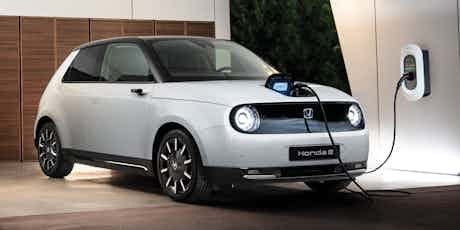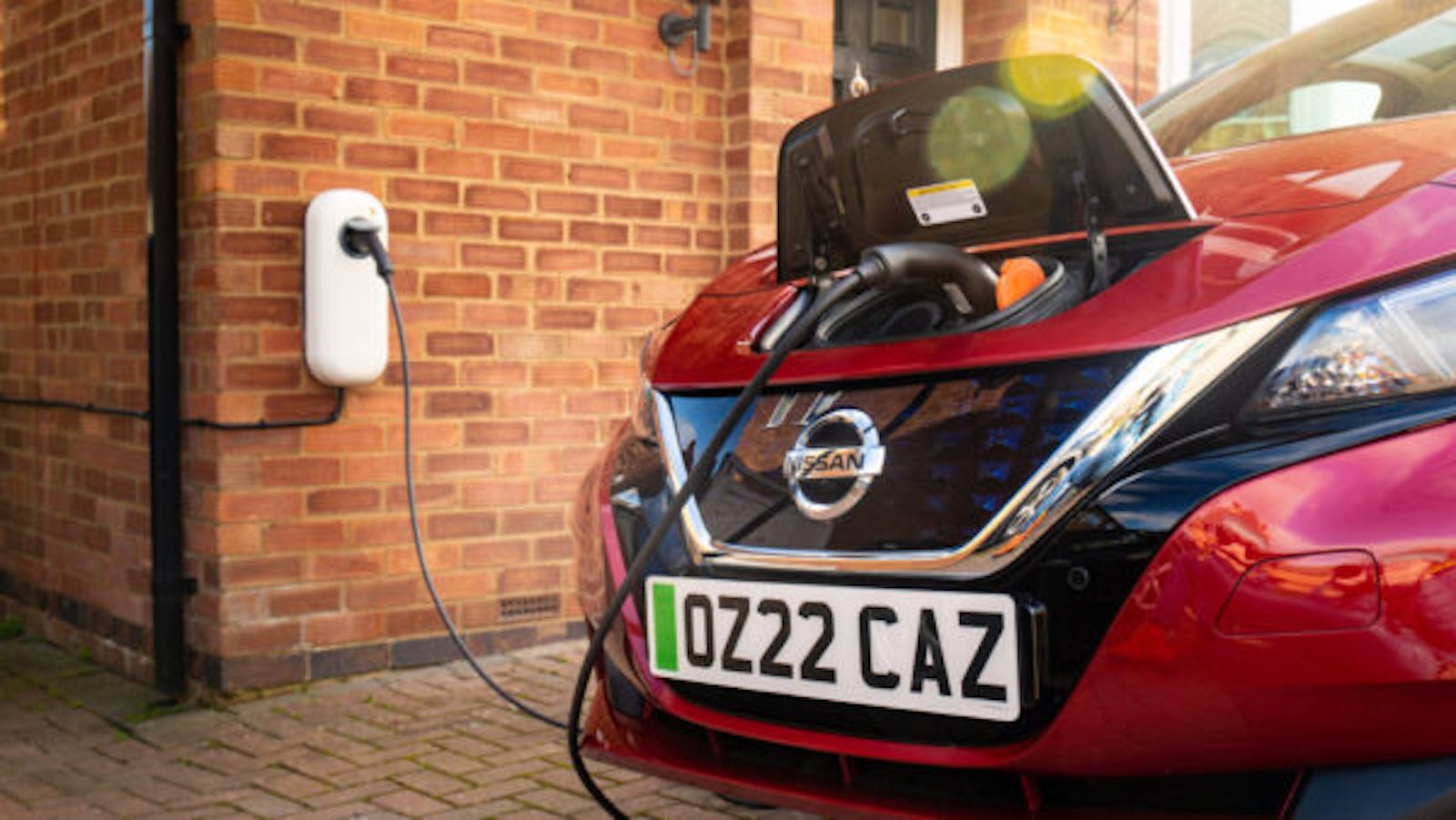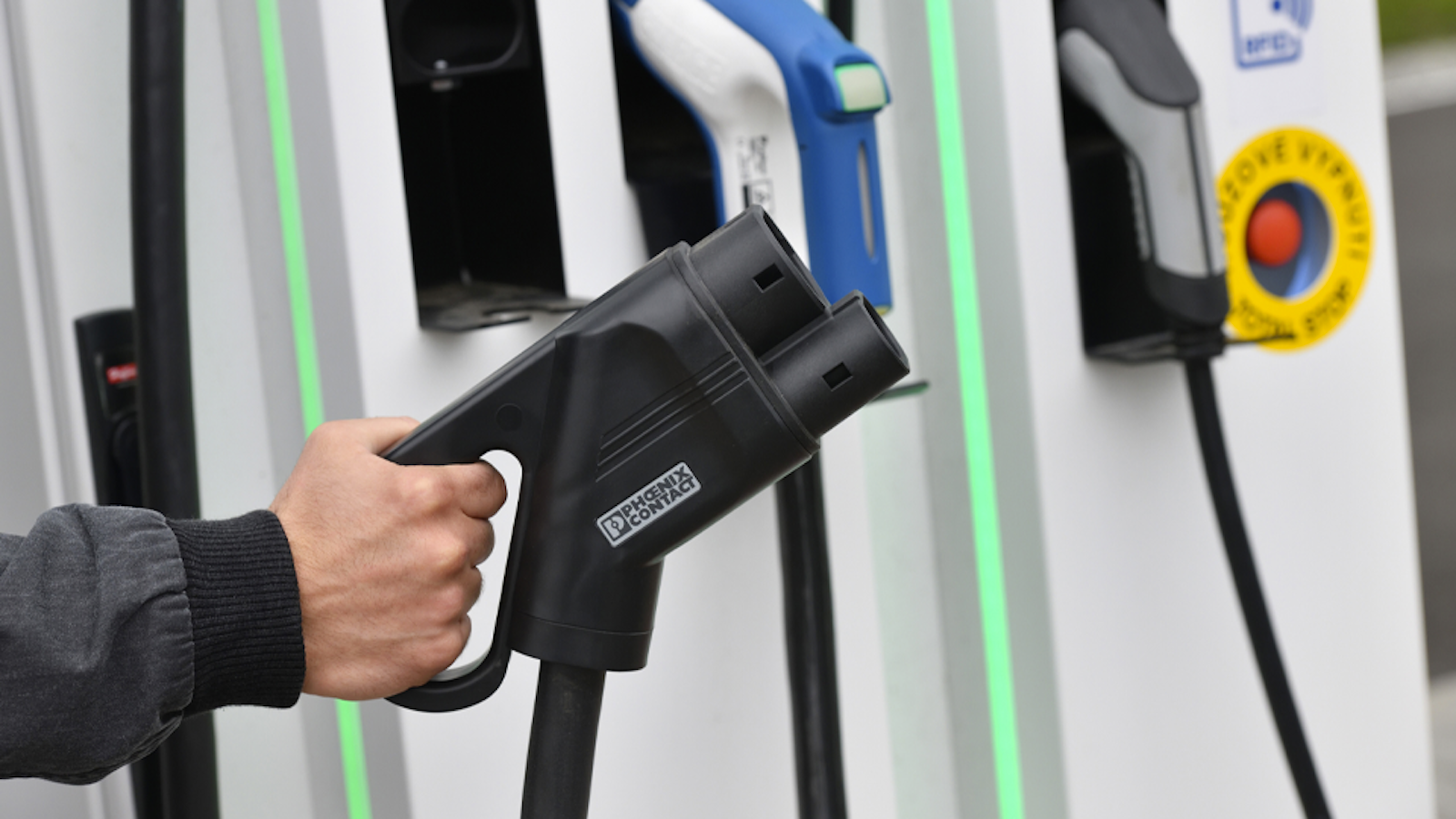How long does it take to charge an electric car?
February 15, 2024 by carwow staff

Wondering how long an EV takes to charge? Wonder no more
Electric cars can take as little as 30 minutes or as long as 48 hours to charge up. That clearly indicates there are a fair few variables to consider when looking into how long EVs take to charge.
Here, we’ll cover the ins and outs of EV charging times, and what you can do to get the quickest recharge possible while maintaining a healthy battery.
Electric car charging times
Before we get into the nitty gritty, it’s worth a quick overview of what determines how long an electric car takes to charge.
There are many, many different models of EV on sale today, and these are available with different size battery packs. In many cases car makers will sell you a larger battery pack as an upgrade for an individual car.
EV battery packs are measured in kiloWatt hours, or kWh. A kWh is a measure of energy. A small EV battery pack might be 30kWh. A large EV battery pack might be 100kWh.
How is charge time calculated?
Think of the size of the battery pack in the same way you would the size of a fuel tank in a petrol or diesel car.
Just as EVs have different size battery packs, EV chargers charge at different speeds. Think of this in the same way you would the rate at which petrol flows from the petrol pump (EVs can’t charge as quickly as this, but the principle is the same).
A three-pin domestic plug would charge at 2.3 kiloWatts (kW), whereas an ultra-rapid public chargepoint like the kind you might find at a motorway services could deliver a charge at 150kW.
Determining how long an EV would take to charge up is therefore a simple question of dividing the battery size by the speed of the charge.
For example, a 100kWh battery would take 40 minutes to go from full to empty using a 150kWh charger. If the charger you found only delivered electricity at 50kW, it would take two hours; and if all you had was a three-pin socket it would take a little under 43.5 hours (100 divided by 2.3 = 43.48).
Obviously if the electric car in question had a smaller battery, let’s say a 50kWh pack, it would take 20 minutes to go from full to empty on a 150kW charger, 60 minutes on a 50kW charger, and 21.74 hours using a three-pin socket.
It’s also worth bearing in mind that different electric cars are capable of charging at different speeds. Just because a charging point is rated at 150kW doesn’t necessarily mean that your car can charge that quickly. It’s worth checking your owner’s manual to see how quickly your car can charge.
If you pull up to a rapid charger which is rated at 150kW, but your car can only accept 100kW charging, you can still top up. The charger and the car talk to each other when you plug in to determine how much juice to deliver at any one time.
How long does it take to charge an electric car at home?

The best way to charge your electric car at home is with a dedicated charging point, commonly known as a wall box.
Charging at home using a dedicated wall box will typically add around 10-30 miles of range per hour, however this depends on your local power supplier, the type of wallbox you have and the model of EV you drive.
Tesla, for example, offers a 22kW home charger which can charge a Model 3 by 40 miles per hour. The catch with this is that you’d have to have three-phase power installed (a type of electricity feed used at industrial and commercial sites) and this can be very costly to do.
Most home power supplies are only capable of having a 7kW charger installed, and this will more than suffice for the majority of people. You’ll be able to charge from 0-100% overnight, so just remember to plug the car in when you get home and you’ll be fine.
Keep in mind that a home wallbox isn’t free, so you’ll have to budget around £1,000 to have one installed. Some manufacturers offer a discount on a home charger when you buy the car, so it pays to shop around. Lead times on home wallboxes are long as well, so be sure to get quotes and arrange installation well before your new EV arrives.
While it is technically possible to charge your EV using a three-pin socket, this will take a long time to do. Some electric cars with larger batteries could take upwards of two days to charge up this way, and it’s also not recommended from a safety point of view due to the heavy load on the socket over a long period of time.
How long does it take to charge an electric car at a public charging point?

More and more public charging points are springing up these days, and EV owners without access to off-street parking will be relying on these to keep juiced up. You can find them in a variety of locations, including town centres, supermarkets and service stations. There are also quite a few popping up on residential streets, with some being integrated into lamp posts.
Charging an electric car through a public charger is likely to cost you, though. There will be some freely available outlets, typically at supermarkets, but others may require you to subscribe to a particular provider or use a pay-as-you-go method.
Some of the most common outputs for public charging points are 7kW outlets, similar to the type you can get installed at home. These typically will give your car 20 to 30 miles of range per hour, while some outlets are rated at 22kW which can top up by 40 miles per hour, providing your car can support 22kW AC charging.
You might even be able to charge up at your workplace. If there isn’t already a dedicated charger, ask your employer about looking to install one — there’s a government grant called the Workplace Charging Scheme which can help cover the costs for businesses installing chargers.
For charging networks that offer subscription services, you can usually use their dedicated smartphone app to check current availability of a charger (so you aren’t left stranded if you turn up at a charger only to find it’s in use), and see how much it will cost you.
If you want to see public charging points local to you, check out this handy EV charging stations map.
How long does it take to charge an electric car at a rapid charger?

If you’re tackling a long drive in an EV and need to top up, then rapid chargers are your friend. These are commonly found in motorway service stations and public car parks, and will usually be rated at at least 50kW rising to 150kW in some cases.
Plug into a 50kW charger and you’ll be able to top up from zero to 80% full in less than an hour, and this can fall to less than half an hour for 150kW chargers, depending on the model of car you’re in.
The speed of fast-charging technology will only increase over time, and will further ease any anxiety associated with charging an electric car. For example, if your vehicle supports it, its battery could be charged from flat to full in comfortably less than an hour.
It’s worth noting though that plug-in hybrid cars often do not support rapid charging.
How long does it take to charge an electric car at a Tesla Supercharger?

Tesla is one of the most famous car brands out there, despite also being one of the youngest. This success is thanks in part to its excellent Supercharger network, providing Tesla owners with over 1,100 fast charging points across the UK.
Tesla’s latest Superchargers can deliver charging speeds of up to 250kW, which will add approximately 150 miles of range in 10 minutes. Until recently, Superchargers were only open to Tesla vehicles. The brand has now started to open them up to other EVs though, with a handful of sites available to all cars.
These impressive charging speeds will be dependent on your vehicle though, as there are only a small handful of cars capable of charging at 250kW. Our handy Tesla charging stations map shows you where Tesla’s nearest charging point is to your location.
Get your next electric car with carwow
Looking for an easy way to change your car? Then carwow is the place to go. You can sell your car online for a great price, and get the best deals on a new one. All through our network of trusted dealers and all from the comfort of your home. Tap the button below to get started on your electric journey today.
Got more questions about electric cars? Take a look at these frequently asked questions:
How far can an electric car go?















